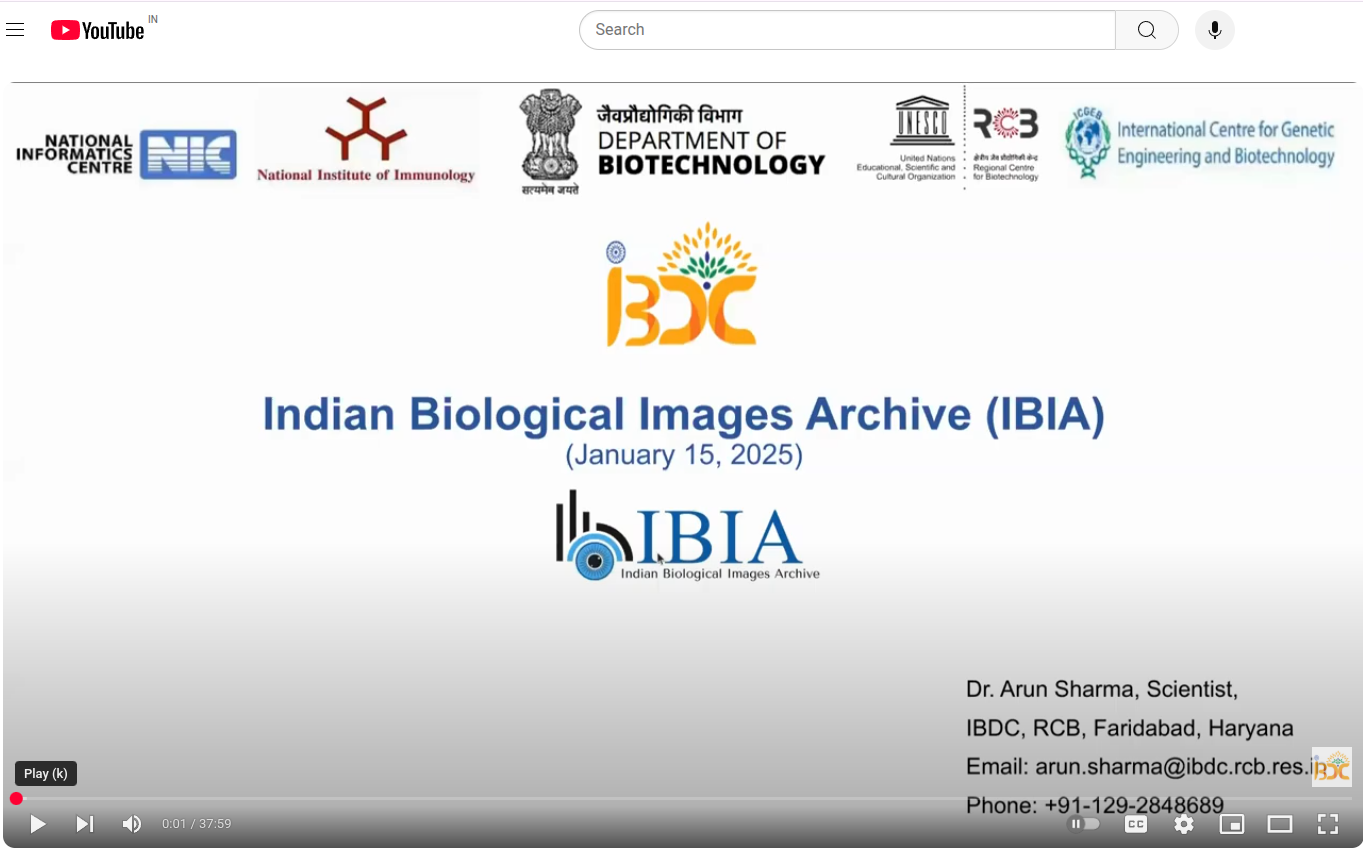In the era of digital transformation, biological imaging has become one of the most powerful tools in the hands of scientists, clinicians, and researchers. From diagnosing complex diseases to monitoring crop health, a single image can reveal insights that once took weeks or months of lab work to uncover. Thus, imaging biological entities is essential to explore and understand the nature of complexity present in living organisms. As the saying goes, “a picture is worth a thousand words”—and in biology, an image can be worth even more. Biological images are not just visual aids—they are data-rich, multidimensional resources that capture the intricacies of life at the cellular, organismal, and ecosystem levels.
Despite the growing volume of imaging data being generated, most of it remains underutilized, largely due to the lack of standardized platforms and metadata conventions. That’s where the Indian Biological Images Archive (IBIA) steps in. The IBIA is a comprehensive, scalable, and user-centric digital platform developed to:
- Capture, organize, and store biological images.
- Ensure data standardization (e.g., REMBI guidelines).
- Promote collaboration between the scientific community through data sharing.
- Provide benchmark datasets for training, validation and comparing AI/ML models.
- Facilitate the discovery and reuse of image data across domains.
- Ensure persistent availability of biological images data at a central portal (for open or controlled access).
From clinical studies to agricultural innovation, IBIA is designed to support a wide spectrum of disciplines and imaging modalities, including but not limited to:
- Visible light photography
- Digital X-ray
- Histopathology
- Microscopy
- CT, PET, and MRI Scans
- Ultrasound, ECHO, ECG, EEG
- Mammography, Endoscopy
- Multispectral and hyperspectral Imaging
- Ophthalmic Imaging
- Unmanned Aerial Vehicle (UAV) images for agriculture
The image data and metadata at IBIA can be organized into five well-defined sections:
- Project
- Study
- Sample
- Experiment
- Upload Images
Users can submit data through a flexible interface, with the ability to add custom metadata fields to ensure no detail is missed. This ensures every dataset is as rich and informative as possible, regardless of its source. Furthermore, the IBIA’s user-interface provide facilities to the data depositor, to check the image data upload status, the md5checksum validation of individual image files (to ensure the integrity of image data with the metadata and to avoid the data loss during data transfer through FTP), to preview the metadata upload status, before the final submission of a study. A submitted study can have either “Open Access” or “Managed Access”, a licence type associated with it, as suggested in the DBT’s FeED protocols. Moreover, all the user-submitted studies are carefully reviewed by the IBIA team and are either approved or rejected. The decision depends on the consideration of several factors such as the quality of data, relevance to the IBIA, importance of the data, etc. The approved studies are released to the public after reaching the study “Release Date”. For more details about the submission process, please refer to the subsequent sections.
Click:-> Download SOP for Images Data Submission to IBIA

Data submission workflow to be used by the submitters to submit data on IBIA portal.
As depicted in the figure above, the data submission on IBIA is a simple ten step process. The submitter has to Register on IBIA (if not already registered) which is followed by Login. After successful Login, the submitter need to submit/upload Project, Study, Samples and Experiments information on IBIA. Thereafter, actual image files are uploaded by submitter, through the IBIA "Upload Images" module, using the FTP credentials. As soon as all the images are uploaded successfully on IBIA, "Uploaded Images Status" option is used to verify the upload size (in terms of server disk space utilized). The submitter has to press "Start Validation" button to start and ensure the integrity and accuracy of upload. After successful validation of all the uploaded images, submitter should ensure about the upload of all required data through "Overall Upload Status" option provided on IBIA website. If all the required information is filled completely on "Project", "Study", "Sample", "Experiment" and "Upload Images"/"File Upload" sections, the submitter will finally confirm the submission on IBIA through "Complete Submission". An automatically generated email will be send to inform all the Authors/Collaborators and IBIA review committee, about the submission of the a new Study (only after the successful submission). Finally, submitted study passes through various quality, suitability, and integrity checks of IBIA to match the archive standards. Thus, the decision on a finally submitted study (approval/rejection) is made within seven working days by the IBIA review committee. After the decision, an approved study will be available in the IBIA's "Study Browse" list and an email will be sent immediately to the submitters about the review decision (approval/rejection) for the study. The studies with "Open Access" licence type will be available for the public use (after the "Study Release Date"). If the submitted study is Rejected, this will be unavailable to IBIA users.
